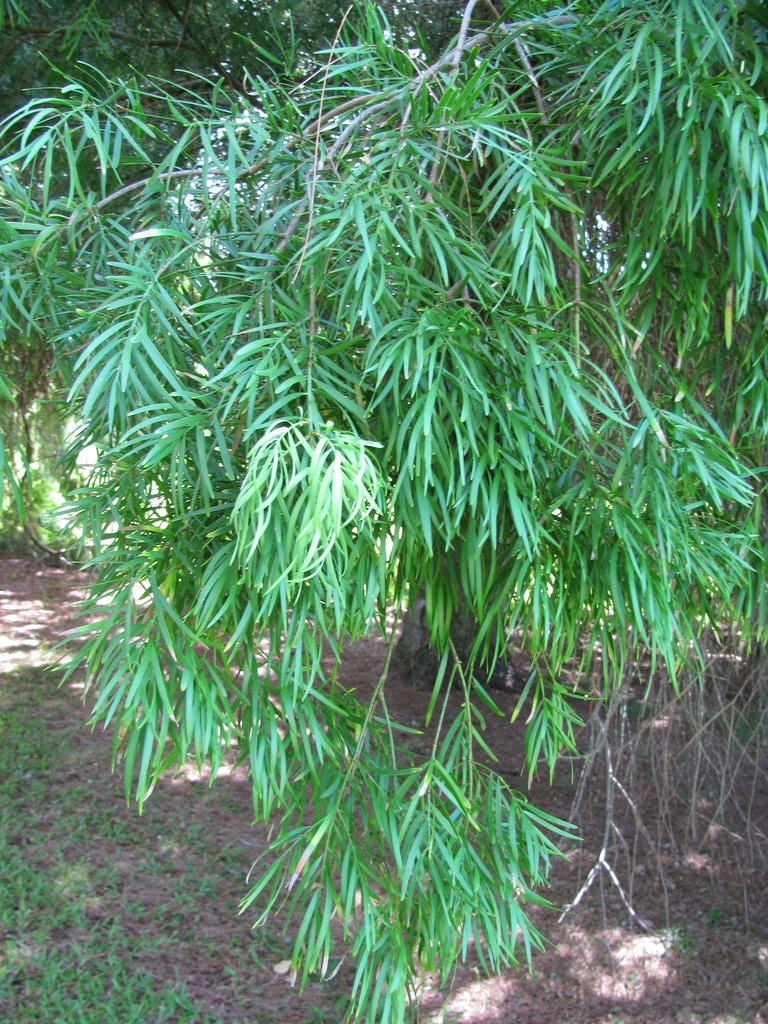What Is A Fern Pine: Learn About African Fern Pine Care


Few areas in the U.S. are warm enough to grow a fern pine, but if you are in zones 10 or 11 consider adding this beautiful tree to your garden. Fern pine trees are weeping evergreens that can grow quite tall, be trimmed and shaped, grow in tough conditions, and provide pretty greenery and plenty of shade.
Fern Pine Information
What is a Fern pine? The fern pine (Podocarpus gracilior) is native to Africa but is now common in USDA zones 10 and 11, especially in urban and suburban areas. This evergreen rainforest tree has skinny green leaves that grow 2 to 4 inches (5-10 cm.) in length, giving the overall appearance of feathers or ferns. The effect is a billowy green cloud that is very attractive in gardens and yards. Fern pines will grow to between 30 and 50 feet (9-15 m.) in height, with a spread out to 25 or 35 feet (8-11 m.). The lower branches droop in a weeping style and these can be left alone or trimmed to shape the tree and provide accessible shade. The tree will grow flowers and small fruits, but these are largely inconspicuous.
How to Grow Fern Pines
There are a lot of ways to use this versatile tree. It can be espaliered, trimmed into a hedge, used for screening, or grown as a shade tree. As a tree, you can trim the lower branches to shape it, or you can let it grow naturally and the branches will droop and make it look more like a large shrub. If you need something to grow in an urban setting with little soil and a lot of concrete, this is your tree. Fern pine care is very easy once you get the tree established. It can tolerate a variety of conditions from poor or compact soil to a lot of shade. It will also grow well in full sun. You should water your fern pine in the first growing season, but after that it shouldn’t need any regular care other than trimming if you choose to shape or espalier it.
Sign up for the Gardening Know How newsletter today and receive a free copy of our e-book "How to Grow Delicious Tomatoes".

Mary Ellen Ellis has been gardening for over 20 years. With degrees in Chemistry and Biology, Mary Ellen's specialties are flowers, native plants, and herbs.